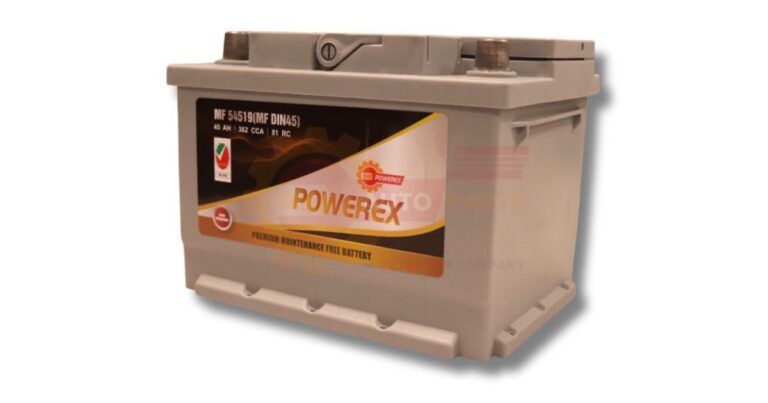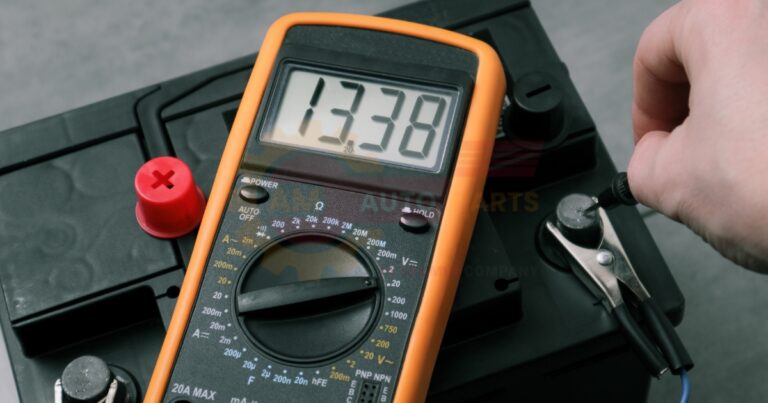Car batteries are an essential component of our vehicles, providing the necessary power to start the engine and operate various electrical systems. However, like any other battery, car batteries have a limited lifespan. Understanding how long a car battery typically lasts and the factors that can affect its lifespan is crucial for every car owner. In this article, we will explore the average lifespan of a car battery, factors that can impact its longevity, tips to extend its life, and signs that indicate it may be dying.
Average Lifespan of a Car Battery
Car batteries are designed to last for a certain period, typically ranging from 3 to 5 years. However, the actual lifespan can vary depending on several factors. These factors include the quality of the battery, driving conditions, climate, and maintenance.
Table 1: Average Lifespan of Car Batteries
| Car Battery Type | Average Lifespan |
| Conventional | 3-5 years |
| AGM | 4-7 years |
| Gel | 5-7 years |
Explanation of Table 1:
The table above provides an overview of the average lifespan of different types of car batteries. Conventional batteries typically last between 3 to 5 years, while AGM (Absorbent Glass Mat) batteries have a longer lifespan of 4 to 7 years. Gel batteries, which are less common, can last between 5 to 7 years. It’s important to note that these are general estimates, and individual battery lifespan may vary.
Factors Affecting Car Battery Lifespan
Several factors can impact the lifespan of a car battery. Understanding these factors can help car owners take necessary precautions to extend the battery’s life.
Table 2: Factors Affecting Car Battery Lifespan
| Factor | Impact on Lifespan |
| Driving Conditions | Frequent short trips, stop-and-go traffic, and excessive idling can shorten the battery’s lifespan. |
| Climate | Extreme temperatures, both hot and cold, can reduce the battery’s performance and longevity. |
| Battery Quality | Higher-quality batteries tend to have a longer lifespan compared to cheaper, lower-quality options. |
| Maintenance | Regular maintenance, such as cleaning terminals and checking fluid levels, can extend battery life. |
| Electrical Load | Excessive use of electrical accessories without the engine running can drain the battery quickly. |
Explanation of Table 2:
Table 2 outlines the various factors that can affect the lifespan of a car battery. Driving conditions, such as frequent short trips and stop-and-go traffic, can put additional strain on the battery, reducing its lifespan. Extreme temperatures, both hot and cold, can also impact the battery’s performance and longevity. The quality of the battery itself plays a significant role, with higher-quality batteries generally lasting longer. Regular maintenance, including cleaning terminals and checking fluid levels, can help extend the battery’s life. Additionally, excessive use of electrical accessories without the engine running can drain the battery quickly.
Extending Car Battery Life
While car batteries have a limited lifespan, there are steps you can take to extend their life and maximize their performance.
Table 3: Tips to Extend Car Battery Life
- Regularly inspect and clean battery terminals to prevent corrosion.
- Avoid frequent short trips and excessive idling, as they can strain the battery.
- Park your car in a garage or shaded area to protect it from extreme temperatures.
- Disconnect electrical accessories when the engine is not running to reduce the load on the battery.
- Use a battery maintainer or trickle charger when the vehicle is not in use for an extended period.
Explanation of Table 3:
Table 3 provides practical tips to extend the life of your car battery. Regularly inspecting and cleaning battery terminals helps prevent corrosion, which can affect the battery’s performance. Avoiding frequent short trips and excessive idling reduces strain on the battery. Parking your car in a garage or shaded area protects it from extreme temperatures, which can negatively impact the battery. Disconnecting electrical accessories when the engine is not running reduces the load on the battery. Finally, using a battery maintainer or trickle charger when the vehicle is not in use for an extended period helps keep the battery charged and in good condition.
By following these tips, you can prolong the life of your car battery and avoid unexpected breakdowns.
Signs of a Dying Car Battery
As a car battery nears the end of its lifespan, it may exhibit certain signs indicating that it needs to be replaced.
Table 4: Signs of a Dying Car Battery
- Slow engine cranking or difficulty starting the vehicle.
- Dim headlights and interior lights.
- Electrical issues, such as problems with power windows or radio.
- The battery warning light on the dashboard.
- A swollen or bloated battery case.
Explanation of Table 4:
Table 4 highlights common signs that indicate a car battery is dying. Slow engine cranking or difficulty starting the vehicle is often an early indication of a weak battery. Dim headlights and interior lights can also suggest a battery nearing the end of its life. Electrical issues, such as problems with power windows or the radio, may occur due to insufficient power from the battery. The battery warning light on the dashboard is another clear sign that the battery needs attention. Finally, a swollen or bloated battery case indicates a potentially damaged battery that should be replaced. Car battery replacement percentage shows how much of your car’s battery power is left Knowing this helps you decide when it’s time to get a new battery before your car won’t start Car voltage levels Most cars use a 12-volt electrical system to power lights and other components while some electric vehicles have higher voltage systems for their motors and batteries
Conclusion
In conclusion, the average lifespan of a car battery ranges from 3 to 5 years, depending on various factors. Driving conditions, climate, battery quality, maintenance, and electrical load all play a role in determining how long a car battery will last. By following proper maintenance practices and taking necessary precautions, you can extend the life of your car battery. Additionally, being aware of the signs that indicate a dying battery allows you to address the issue before it leads to unexpected breakdowns. Remember, a well-maintained battery ensures a reliable and hassle-free driving experience. Here is a comparison table showing the estimated lifespan of different types of car batteries:
| Car Battery Type | Lifespan |
| Lead-acid | 3-5 years |
| AGM | 4-7 years |
| Lithium-ion | 8-10 years |
| Gel | 5-7 years |
| Calcium | 4-6 years |
The table above provides a comparison of the estimated lifespans for various car battery types. “Rev up your vehicle’s performance with AM Autoparts – the ultimate destination for high-quality automotive parts and accessories. Shop now and experience the difference in your ride!






